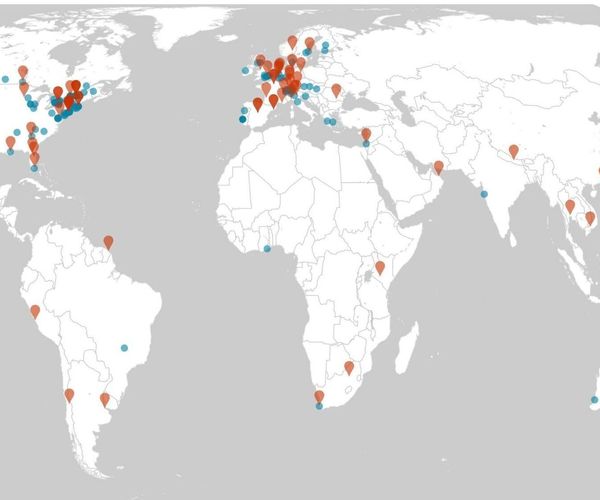The mission of GeoSentinel, also referred to as the GeoSentinel Surveillance Network of the International Society of Travel Medicine, is to conduct high-quality, enhanced surveillance and research on international travelers, migrants, and refugees. Established in 1995 as a partnership with the US Centers for Disease Control and Prevention (CDC), GeoSentinel aims to ensure the health of international travelers and to mitigate the potential adverse effects of novel emerging infectious diseases and travel-related infections.
The SARS-CoV-2 pandemic, as well as many other well-established and emerging infectious diseases that threaten the health and wellbeing of populations worldwide, has revealed the urgency of the surveillance that GeoSentinel provides. As a global provider-based emerging infections sentinel network, GeoSentinel conducts surveillance for travel-related infections and communicates and assists with global public health responses by the CDC, PAHO, WHO, and other partners.
CEID faculty member, Dr. Davidson Hamer, is the Surveillance Lead of the GeoSentinel network. The network currently comprises 72 sites (in the map, referred to as ‘GeoSentinel Members’) in 30 countries, located on six continents (see map below). GeoSentinel sites are led by site directors and co-directors, who are medical professionals with extensive expertise in travel and tropical medicine.
Further information on GeoSentinel’s objectives and surveillance strategy can be found here. Below please find a summary of the current projects the CEID is involved in through the work of One Health and Climate Change co-core-director, Dr. Hamer:
- COVID-19 International Travel Sentinel Surveillance (CITrSS): To examine respiratory tract infections including COVID-19 in travelers
- Genomic Surveillance of SARS CoV-2 in Major League Soccer (MLS) Members: To sequence COVID-19 from MLS personnel to identify variants of concern, and to assess the association of SARS-CoV-2 infections in MLS personnel with variant type, travel history, and vaccination history
- PREdictors of SEVERE infections and diagnosis in travelers and migrants (PRESEVERE): To determine the etiology of acute febrile illness in travelers and migrants and biomarkers predictive of outcomes
- NEURocognitive Outcomes in MALaria (NEURAL): To evaluate neurocognitive outcomes in travelers with severe and uncomplicated Plasmodium falciparum malaria
- GEOSentinel Enhances Malaria Molecular Surveillance (GEOSUMMIT): To establish sentinel surveillance for monitoring the molecular epidemiology of travel-related malaria
- HumAn Monkeypox ViraL KinETics (HAMLET): To conduct antibody, PCR, and isolation in cell-culture testing among those with or without prior smallpox vaccination among a longitudinal prospective observational cohort.
